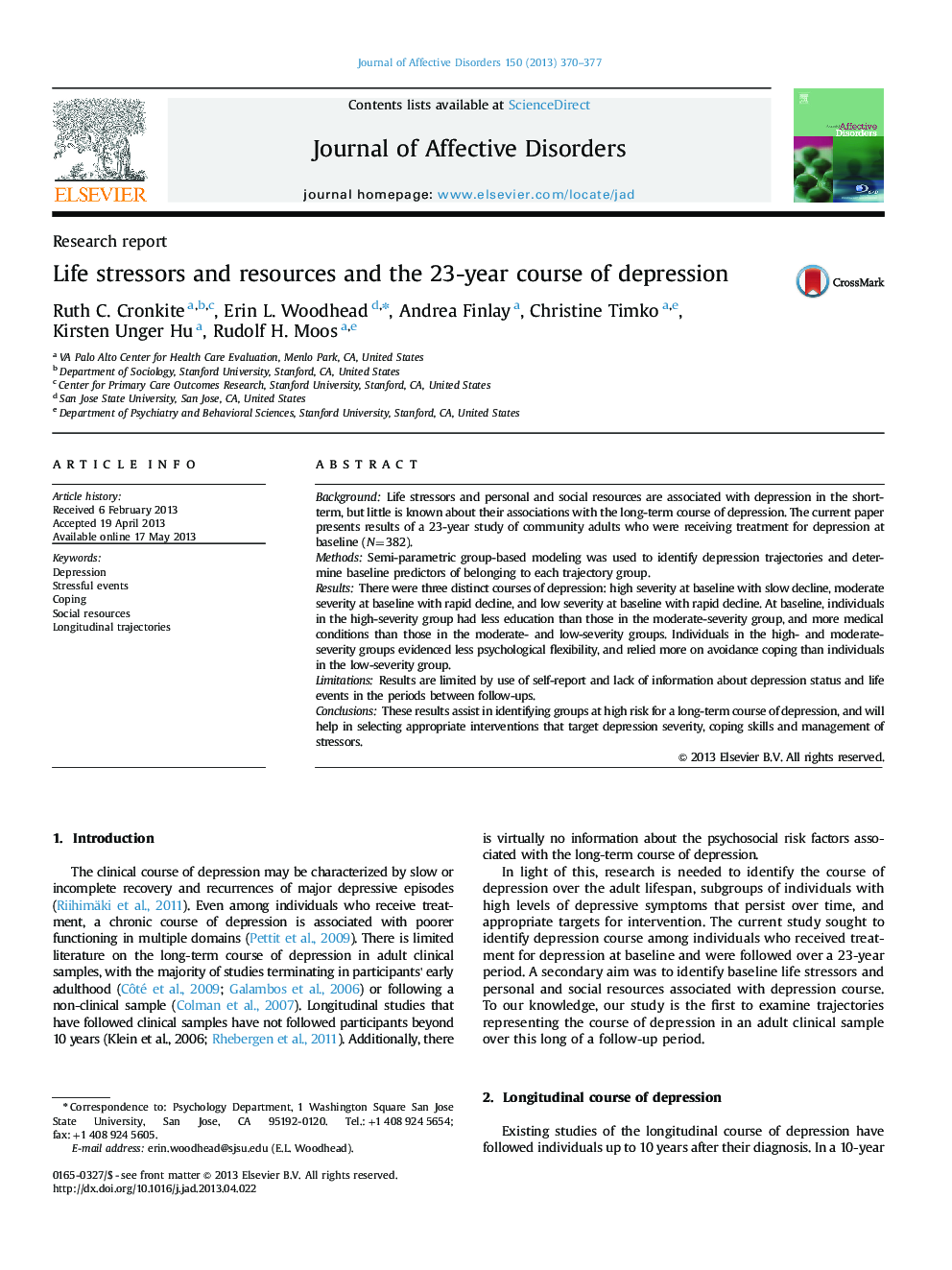| Article ID | Journal | Published Year | Pages | File Type |
|---|---|---|---|---|
| 6234248 | Journal of Affective Disorders | 2013 | 8 Pages |
BackgroundLife stressors and personal and social resources are associated with depression in the short-term, but little is known about their associations with the long-term course of depression. The current paper presents results of a 23-year study of community adults who were receiving treatment for depression at baseline (N=382).MethodsSemi-parametric group-based modeling was used to identify depression trajectories and determine baseline predictors of belonging to each trajectory group.ResultsThere were three distinct courses of depression: high severity at baseline with slow decline, moderate severity at baseline with rapid decline, and low severity at baseline with rapid decline. At baseline, individuals in the high-severity group had less education than those in the moderate-severity group, and more medical conditions than those in the moderate- and low-severity groups. Individuals in the high- and moderate-severity groups evidenced less psychological flexibility, and relied more on avoidance coping than individuals in the low-severity group.LimitationsResults are limited by use of self-report and lack of information about depression status and life events in the periods between follow-ups.ConclusionsThese results assist in identifying groups at high risk for a long-term course of depression, and will help in selecting appropriate interventions that target depression severity, coping skills and management of stressors.
